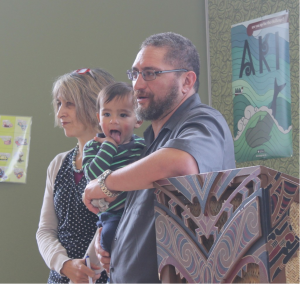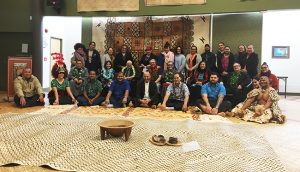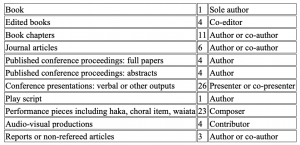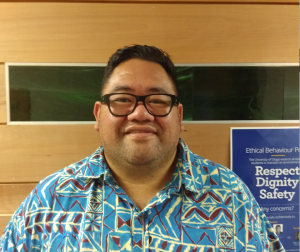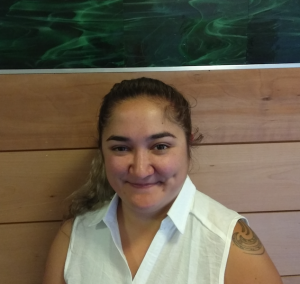Looking for a new Dean
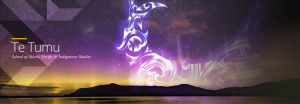 The university is advertising for a new Dean of Te Tumu, someone who is a great leader, researcher and person, with research and teaching aligning to Māori, Pacific, or Indigenous Studies (or a combination of these). CLICK HERE FOR LISTING.
The university is advertising for a new Dean of Te Tumu, someone who is a great leader, researcher and person, with research and teaching aligning to Māori, Pacific, or Indigenous Studies (or a combination of these). CLICK HERE FOR LISTING.
Please share this to your networks, and to anyone who you feel might be the right person for the job. Te Tumu is an exciting, dynamic school, at the best university in New Zealand.
Te Tumu’s First Professor Emeritus
Poia Rewi (Ngāti Manawa, Tūhoe, Te Arawa, Ngāti Whare and Tūwharetoa) was appointed as a Senior Lecturer in Te Tumu, School of Māori, Pacific and Indigenous Studies at the University of Otago in 2003. Previously he had been a Māori Studies academic at the University of Waikato from 1992. In 2016 he was promoted to professor. He ended his service at Te Tumu in mid-2020 in July 2020 when he took up the role of Chief Executive/Tumu Whakarae of Te Mātāwai, a government organisation established under Te Ture mō Te Reo Māori 2016/The Māori Language Act 2016, to foster and support Māori language development for iwi.
Although the honour of professor emeritus is normally awarded to professors retiring from academia, the University’s Policy for the Award of the Title of Emeritus Professor allows the title to be made to a Professor who resigns, for example, to take up a distinguished public position. Poia’s illustrious academic career (discussed below) and his leadership within Te Tumu and the university induced Professor Michael Reilly and other Te Tumu colleagues to seek this honour for our recently departed Dean.
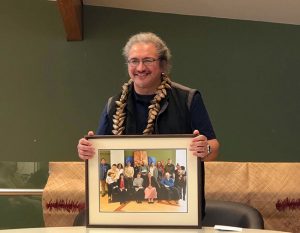
Professor Poia Rewi at his farewell at Te Tumu, 24 June 2020, with a photo featuring his Te Tumu colleagues.
Speaking to the Otago Bulletin Board on Poia’s departure in July last year, Professor Reilly described Poia as a “deeply humble, modest man who believes that it is for others to speak of the kumara’s sweetness.”
“His abiding passion is always first and last, te reo Māori. He advocates for its use by all New Zealanders. In his teaching and writing he always encourages his students and others to seek out and to utilise the rich diversity of language forms that the reo has inherited from the ancestors.”
“In Te Tumu Poia was generous with his time and showed hospitality to all. He became well known for volunteering to work in the kitchen, always concerned to ensure visitors, staff and students had plenty of food; a mark of the true leader, one who always thought of the well-being of others.”
Poia places much value on the importance of teaching the new generation, and work within the community. The growing success of his postgraduate students attests to his influence, and in 2012 he received the Otago University Students’ Association Supervisor of the Year Award. His knowledge of the reo and Māori performing arts resulted in him being appointed a judge at many regional Māori-language speaking competitions as well as being a judge at national, regional and tribal Māori performing arts competitions (adult/senior and high school levels).
Te Reo Māori has always been his passion. In 1997 he received a certificate as a translator and interpreter of te reo Māori from Te Taura Whiri i Te Reo Māori/The Māori Language Commission. This is an exceedingly hard qualification to attain and demonstrates his high level of proficiency in the Māori language. In 2005 Poia completed the first PhD solely in Te Reo Māori at the University of Otago. It was a study of whaikōrero or Māori oratory through the words of a group of some 30 respected elders, many of them highly regarded orators on the marae throughout the country.
Subsequently, he revised and translated the thesis into English for publication as Whaikōrero: The World of Māori Oratory, published by Auckland University Press in 2010. This book was the first major publication to study this major Māori art form. In 2011 it was awarded the New Zealand Society of Authors – E. H. McCormick Best First Book Award for Non-Fiction. Later, it became the basis for a 12 part Māori Television documentary, ‘Whaikōrero’, which won the Broadcasting-Māori medium category in Ngā Tohu Reo Māori 2014/the Māori Language Awards 2014.
As a researcher his dominant focus has been Te Reo Māori and the associated performing arts. As a teacher of the reo to second language learners he has always been interested in the revitalisation of the reo and this became the centre of his research in more recent years. In 2010 he was a lead investigator for two major grants from Ngā Pae o te Māramatanga, a national Centre of Excellence: ‘He Iho Reo, Developing a toolbox to support Māori Language Transmission and Maintenance’ ($226,439), and ‘Te Pae Tawhiti: “Te Kura Roa,”’ a jointly commissioned research project with Rāwinia Higgins of Victoria University of Wellington ($1,500,000). A number of reports and publications were generated from these grants including
- Day, D & Rewi, P., ‘Te Kura Roa wānanga wawata: Inter-department Specific- enablers/inhibitors’, 2013. Twelve individualised reports distributed to each of the 12 participating Government departments, approximately 667 pages.
- Higgins, R., Rewi, P., Olsen–Reeder, V. (eds.), The Value of the Māori Language: Te Hua O Te Reo Māori, Wellington: Huia Publishers, 2014,
- Day, D., Rewi, P. & Higgins, R. (eds.), The Journeys of Besieged Languages, Newcastle upon Tyne, UK: Cambridge Scholars Publishing, 2016.
Further to his academic pursuits, Poia has been a prolific writer of Māori narrative over the years manifesting in published works as haka compositions, waiata, Māori language plays, fiction and nonfiction. This has resulted in several texts published in the Pikihuia short stories series. Poia himself has also adjudicated the Pikihuia Māori writers’ awards for a number of years. His most recent writing accolade was acknowledged in 2020 for a te reo Māori text.
Poia has completed 86 outputs, as shown in the summary on the left.
Poia served as Dean of Te Tumu between 2015 and 2020. Another significant leadership role at Otago was as Associate Dean Māori, Division of Humanities, 2012-2014. He was also Deputy Director of Ngā Pae o te Māramatanga, a national Centre of Research Excellence, between 2018-2020.
His recognition as a leader in the Māori world was evidenced by his service as Acting Chief Executive of Te Taura Whiri i Te Reo Māori/The Māori Language Commission from 2014-2015. He was also a member of the Commission’s Board between 2012-2015. This outstanding service within, but also outside the university, helped pave the way to his new role at Te Mātāwai. Poia was elected in 2021 as a Fellow of the Royal Society of New Zealand Te Apārangi, “celebrated as one of the most active research specialists in Māori culture, language revitalisation, oral history and performing arts.” Yet, due to his modesty, even some of his Te Tumu colleagues had no idea of the extent of his scholarship.
Poia Rewi always said when he first came down to Otago 18 years ago he had only wanted to stay for a few years before heading back up to the North Island. We knew that he was only on loan to us, and it was an honour to have him for the time that that we did. E hoa, me kore ake koe hei ārahi i a mātou, arā, i ō hoa mahi o Te Tumu me te whare wānanga, i te ao Māori kei waho o te whare wānanga, me ngā tini tāngata e kimi ana, e whakaū ana, e whakapiki ana i te reo Māori.
[Thanks to Professor Michael Reilly and Dr Tangiwai Rewi for information for this post.]
New Te Tumu Staff
Te Tumu is fortunate to have two new staff teaching at Te Tumu this year.
Dr Michael Ligaliga was raised in Upolu, Samoa, and attended school in both Samoa and Auckland. He them moved to Hawai’i to pursue undergraduate study at Brigham Young University in Hawai’i, graduating in Political Science and International Peace Building. He first came to Dunedin in 2011, undertaking a PGDipArts at the National Centre for Peace and Conflict Studies, followed by an MA.
Michael then moved back to Hawai’i where he taught at BYU-H, and was for a time the acting Director of the David O. McKay Center for Intercultural Understanding. He then returned to Otago in 2015 to enrol in his PhD at the NCPCS, with Dr Heather Devere as his primary supervisor. Not only is Michael the first Pacific Islands doctoral student to graduate from the Centre, but his thesis was deemed to be ‘exceptional’ (i.e. when all the examiners of a candidate’s thesis agree that the thesis is among the top 10% of theses examined.)
Michael’s research focuses on domestic and family violence through a Peace and Conflict Studies lens, and the application of Peace and Conflict theories to aspects of Pacific societies. In particular he played with Galtung’s Typology of Violence to highlight the “invisible” nature of societal violence. Michael will continue to pursue and publish this research while he is here in Te Tumu.
This year the university is trialing a new co-taught paper at summer school (PACR101) designed to help integrate new Pasifika students into the university lifestyle and community. Michael arrived in January, and was straight into the classroom teaching these students. This year he will be giving some guest lectures in PACI101 “Pacific Societies” and PACI201″Contemporary Pacific Islands Issues”, and in Semester Two he will teaching PACI410 “Pacific Leadership” and PACI310, a special topic based on his doctoral research.
Michael is pleased to be back “home” in Dunedin, as are his wife Faalima and their daughter and son, Joanie and Leahcim.
Dr Gianna Leoni (Ngati Kuri and Ngai Takoto) is well-known to almost anyone associated with Te Tumu. She is a former Tumuaki (President) of Te Roopu Māori (in 2013), and undertook her BA(Hons) at Te Tumu, as well as her MA and PhD. Her PhD, written in te reo Māori, looked at the use of te reo in government departments. She has also been a tutor and senior tutor, research assistant, teaching fellow, and a co-editor of Te Kōparapara, Te Tumu’s MAOR102 textbook.
Her last position was as a postdoctoral fellow, funded by Ngā Pae o te Māramatanga (Whai Rawa theme), investigating the expression of economic aspirations in te reo Māori in the past, present and future.
Gianna has been appointed as a lecturer, and this year will be teaching MAOR311, one of our 300-level Māori language papers, and INGS501, the core theory and methods paper for the Master of Indigenous Studies programme. She will also co-ordinate and teach into MAOR206/306 (He Pūkenga Tuhi), a Māori writing skills paper.
Gianna will continue her research from her postdoctoral programme, but is also interested in issues of Māori identity. She sees a multiplicity of identities, and wishes to break down stereotypes of what “Māori” is meant to mean. She believes it is important for her research to be relevant and contribute to the communities she is involved with, the local Dunedin Māori community and her hau kāinga in Muriwhenua.
In her spare time, Gianna is president of the South Pacific Rugby League and Sports Club. The club, with a mainly Māori and Pasifika membership, now boasts 15 teams playing rugby league, basketball, softball and netball.
New qualification for Te Tumu alumnus
Hone Te Rire is the sort of person who collects qualifications, one of which was our Master of Indigenous Studies, completed in 2009. Hone also trained as an amorangi minister in Te Aka Pūaho (the Presbyterian Māori Synod) and has been working at Nawton Community Presbyterian Church in Hamilton while studying for his Diploma in Ministry through the Knox Centre for Ministry and Leadership.
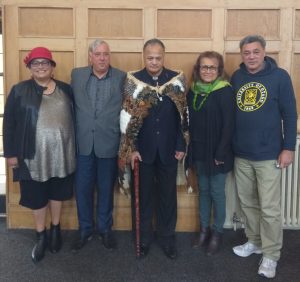
From left: Tangiwai Rewi and Lachy Paterson (Te Tumu), Hone Te Rire, Pearl Matahiki (Tumuaki, Te Huka Mātauraka) and Rev Wayne Te Kaawa (former Moderator of Te Aka Pūaho, and current PhD student and the University’s Māori chaplain).
Several Te Tumu staff members and other University colleagues went along to support Hone at his graduation at John McGlashan College on Wednesday. Hone is considering where his path will lead, and is even contemplating another qualification, a PhD at the University of Otago. Koia ki a koe, e Hone. Kia kaha e hoa.
Employment Opportunities for Māori and Pacific PhD graduates.
The following has been received from AUT, with employment opportunities for new Māori and Pasifika PhD graduates.
———————
Recruiting Now – Māori and Pacific Early Career Academic Programme
- Permanent Lecturer appointments available for Māori and/or Pacific scholars
- Utilise your PhD and begin your academic career
- Variety of disciplines sought across three outstanding facultie
Auckland University of Technology (AUT) aspires to be the University of opportunity for Māori and Pacific people and is proactively engaged in growing the number of our Māori and Pacific academics. AUT is dedicated to increasing the participation and success of Māori and Pacific peoples across all academic disciplines. We are a young university with an innovative, student centric academic environment with a strong focus on research-led teaching
The 2019 Māori and Pacific Early Career Academic Programme offers Māori and/or Pacific scholars’ permanent, full-time appointments as research-active lecturers.
- Click HERE visit our dedicated programme page on the AUT Careers site. Watch videos of some of our current early career academics speak, access individual job links for further information and make an application!
We are currently recruiting the following subject areas:
- Lecturer in Management (Business School)
- Lecturer in Public Relations (School of Communication Studies)
- Lecturer in Digital Media (School of Communication Studies)
- Lecturer in Communication Design (School of Art & Design)
- Lecturer in Digital Design (School of Art & Design)
- Lecturer in Māori Studies and New Zealand History (Te Ara Poutama)
A full programme information pack for the programme is also attached to each job advert. For an initial confidential chat, just contact Mike Wood, Executive Recruitment Partner on +64 9 921-9185 or mike.wood@aut.ac.nz.
Professional development and networks
In all roles you can expect to be surrounded by an extensive support programme designed to develop your teaching skills, extend research capability and advance your professional skills in supervision and graduate mentoring. This includes a dedicated development programme and cultural support network, access to approved expenditure on research, a commitment from the school to your personal professional development, as well as ongoing support from your line manager, a dedicated senior academic mentor and a member of the University’s Strategic Leadership Team in your development as an academic.
Important programme eligibility criteria:
- This must be your first full-time, permanent academic teaching position in either a university or other tertiary education provider. You will also have no more than 5 years fixed-term contract academic teaching experience (in total) in a university or other tertiary education provider.
- You must have a completed PhD within 3 years of application to this programme, or will have submitted your completed thesis for examination by 22 February 2019
- Programme is open to applicants of Māori or Pacific genealogical descent
- You must be able to start before 25 February 2019
AUT already has over 30,000 adventurous, energised, innovative educators, researchers and students that have been drawn to test boundaries, challenge established theories, break new ground and discover what is possible… Join us!
Please Note:
- Closing date for applications is Sunday, 30 September 2018
- Interviews will take place throughout October 2018
Congratulations to Nathan Matthews
He mihi nunui ki a Nathan Matthews, e piki haere ana ki te ara mātauranga. Congratulations to Nathan Matthews in his new role at Te Whare Wānanga o Awananuiārangi. Nathan completed his undergraduate and postgraduate studies in Māori Studies in Te Tumu, completing his PhD in 2006. He also taught te reo Māori and Māori performing arts in Te Tumu for a number of years. In 2009 Nathan moved to Massey University to take up the role of Māori doctoral studies coordinator, later shifting to Whangārei as the founding principal of Te Kura Hourua O Whangarei Terenga Paraoa, a partnership secondary school. It’s great to hear that our former colleague and alumni of Te Tumu is heading back to the tertiary sector as Head of the School of Indigenous Graduate Studies at Te Whare Wānanga o Awanuiārangi.
Tangata Whenua Internship at Waikato Museum
Mō ngā tauira… Kei te kimi te Whare Taonga o Waikato i tētahi tangata hei kaimahi āwhina mō ngā taonga Māori. He pai tēnei momo mahi hei kaupae tuatahi o tō ara mahi, rangahau rānei. Tirohia te pānuitanga, kia kitea he pai rānei tēnei tūranga mōu.

